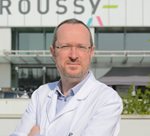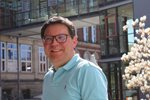Interview with the course directors Eric Deutsch and Udo Gaipl
PDF version
The immunotherapy course is a new ESTRO course. What inspired the development of this Immunotherapy course, and how does it address the current challenges in the field?
Udo Gaipl: From my point of view this topic is overdue since many years. When I funded the Radiation Immunobiology group in 2007, only few groups in the radiation oncology field, at least in Germany, believed in beneficial immune modulations induced by radiotherapy (RT). The dogma that RT has only local effects on the tumor cells’ DNA has changed completely during the last decade. It has become obvious that RT in combination with immune therapies has a huge potential to induce effective and long-lasting anti-tumor immunity. That`s why it is of great importance to update the Radiation Oncology Society in the field of immunotherapy.
Eric Deutsch: The field has clearly emerged as a prominent component of the understanding of tumour response to radiotherapy and has fuelled several clinical trials. At this time, the clinical results differ, and this underscores the need for a re-appraisal of the key concepts and major challenges. The contrast between clinical data and the large amount of preclinical data will enliven this timely course.
Could you highlight one or two outcomes that you consider particularly crucial for participants in advancing their understanding of immunotherapy and radiotherapy? How do these outcomes translate into practical applications in clinical settings?
ED:The concept of immunoradiotherapy combinations must integrate the complexity and diversity of tumour biology with the immunological fitness of the patient. Administration of a universal immune-radiotherapy regimen to all patients will not give optimal results.
UG: The course will sensitise the audience for the many challenges of combination of RT with immune therapies (dose, sequence, radiation quality, …) and propose rationales for clinical trials based on biological knowledge.
The course will tackle immune checkpoint inhibitors. Could you provide insights into the novel therapeutic approaches that will be covered, and explain how they contribute to overcoming therapeutic resistance?
UG: Immune checkpoint inhibitors are nowadays well known. But the big challenges to combine them with RT and other immune therapies should become obvious.
ED:This is a broad field. I give the example of how dissociated responses to immunotherapy in the metastatic setting can be applied selectively to tumour refractory sanctuaries in the frame of spatial cooperation between immunotherapy and radiotherapy.
How does the course address the intricate interplay between radiotherapy and the immune system, including factors such as dose, fractionation, volume and timing?
ED: Radiation therapy is known to exert both immunostimulating and immunosuppressing properties. It is very important, therefore, to understand that increasing the radiation dose or the irradiated volume might not necessarily translate into an increase in the immunostimulating effects of a given radiotherapy regimen.
The course is designed for radiation oncologists, medical physicists, scientists, and medical oncologists. How do you envision the interdisciplinary nature of the course benefiting participants, and what unique perspectives can each group bring to the discussions and practical applications?
ED: I feel it is important that these disciplines, with different backgrounds and expertise, are able to share a common language. This is necessary to understand not only the basics but also the key challenges and evolutions of this important field.
UG: The design of multimodal therapies needs interdisciplinary input. This will be one big issue of the course.
Given the rapidly evolving field of immunotherapy, how does the course will adapt in the future editions to include emerging trends, and do you foresee any specific developments influencing the course content in the future?
ED: The course has to integrate the latest developments in the field, which is moving fast. Results from clinical trials and preclinical data that challenges established concepts will be integrated into future courses.
UG: Immune therapies in general (not only immune checkpoint inhibitors) will be discussed in the context of the individual application based on stratification of patients with immune parameters.
Immunotherapy Course
3-5 March 2024 I Lisbon, Portugal
Information and Registration here.
Course Directors:
 |
 |
| Eric Deutcsh, Radiation Oncologist, Institut de cancérologie Gustave Roussy, Villejuif (FR) |
Udo Gaipl, Scientist, Translational Radiobiology of the Department of Radiation Oncology at the Universitätsklinkum Erlangen, Erlangen (DE) |